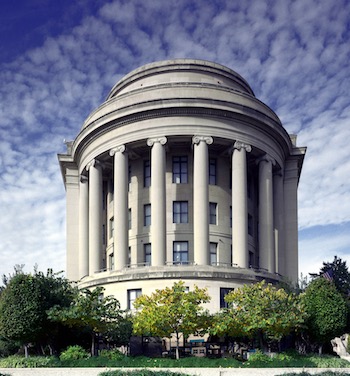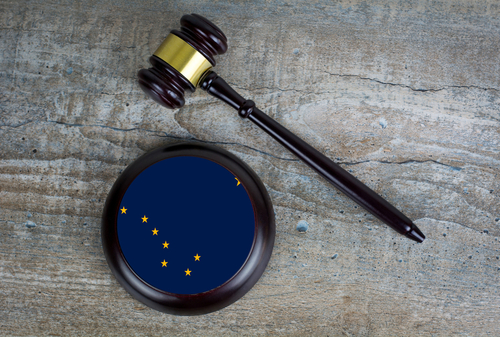Texas Court bars FTC’s non-competition ban Nationwide
The Court concludes that the FTC is authorized to promulgate rules prohibiting unfair methods of competition …. However, after reviewing the text, structure, and history of the Act, the Court concludes the FTC lacks the authority to create substantive rules through this method.”
The Federal Trade Commission Building, originally known as the Apex Building, located at 600 Pennsylvania Avenue, NW in the Federal Triangle area of Washington, D.C. Public Domain.
Following a decision in July in which U.S. District Judge Ada Brown of the Northern District of Texas granted a preliminary injunction for global tax service provider Ryan LLC against the Federal Trade Commission’s (FTC) final rule banning non-compete provisions in U.S. employment contracts, the court has now set aside the FTC’s rule nationwide.
The FTC voted in April to publish and approve a final version of the January 2023 proposed rule that would ban employers from using non-compete clauses for their employees. The rule allows existing non-competes to remain in force for senior executives but bans new non-competes for all workers and makes existing non-competes for all other workers unenforceable after the effective date, which is 120 days after publication in the Federal Register.
There have been several lawsuits seeking to overturn the rule, but the FTC argues that Section 6(g) of the FTC Act empowers it to make substantive rules related to unfair methods of competition.
However, the Texas court’s opinion found that the FTC does not have authority to issue substantive rules. Specifically, the court said:
“Plainly read, the Court concludes the FTC has some authority to promulgate rules to preclude unfair methods of competition. In fact, Section 18 of the Act refers to this power. See 15 U.S.C. SS 57a. The court found that Section 6(g) is “indeed a ‘housekeeping statute,’ authorizing what the APA terms ‘rules of agency organization procedure or practice, as opposed to substantive Section 6(g) is “indeed a ‘housekeeping statute,’ authorizing what the APA terms ‘rules of agency organization procedure or practice’ as opposed to ‘substantive rules.'”
The court further found that the rule is “arbitrary and capricious because it is unreasonably overbroad without a reasonable explanation” and that it “imposes a one-size-fits-all approach with no end date, which fails to establish a ‘rational connection between the facts found and the choice made.'” The opinion said that the FTC’s rule was based on “inconsistent and flawed empirical evidence” because the Commission “relied on a handful of studies that examined the economic effects of various state policies toward noncompetes” and “the record shows no state has enacted a non-compete rule as broad as the FTC’s Rule.”
The court thus granted summary judgment for the plaintiffs and set aside the rule, which is said should not be enforced or take effect on September 4, 2024 as planned.
On July 23, just a few weeks after preliminary injunctive relief was granted to Ryan, U.S. District Judge Kelley B. Hodge of the Eastern District of Pennsylvania published a memorandum denying a preliminary injunction against the rule for ATS Tree Services, signaling a split among regional circuit courts on the topic.
Josh Robbins of Pacific Legal Foundation, who represented ATS Tree Services, said they are pleased by Tuesday’s decision, adding: “This is a great first step and we expect litigation over the ban to continue.”
The FTC has said in public statements to the press that it is seriously considering an appeal.
Eileen McDermott
Eileen McDermott, Editor-in Chief of IPWatchdog.com is a veteran IP and legal journalist. Eileen McDermott is a veteran IP journalist and has held editorial and management positions at







